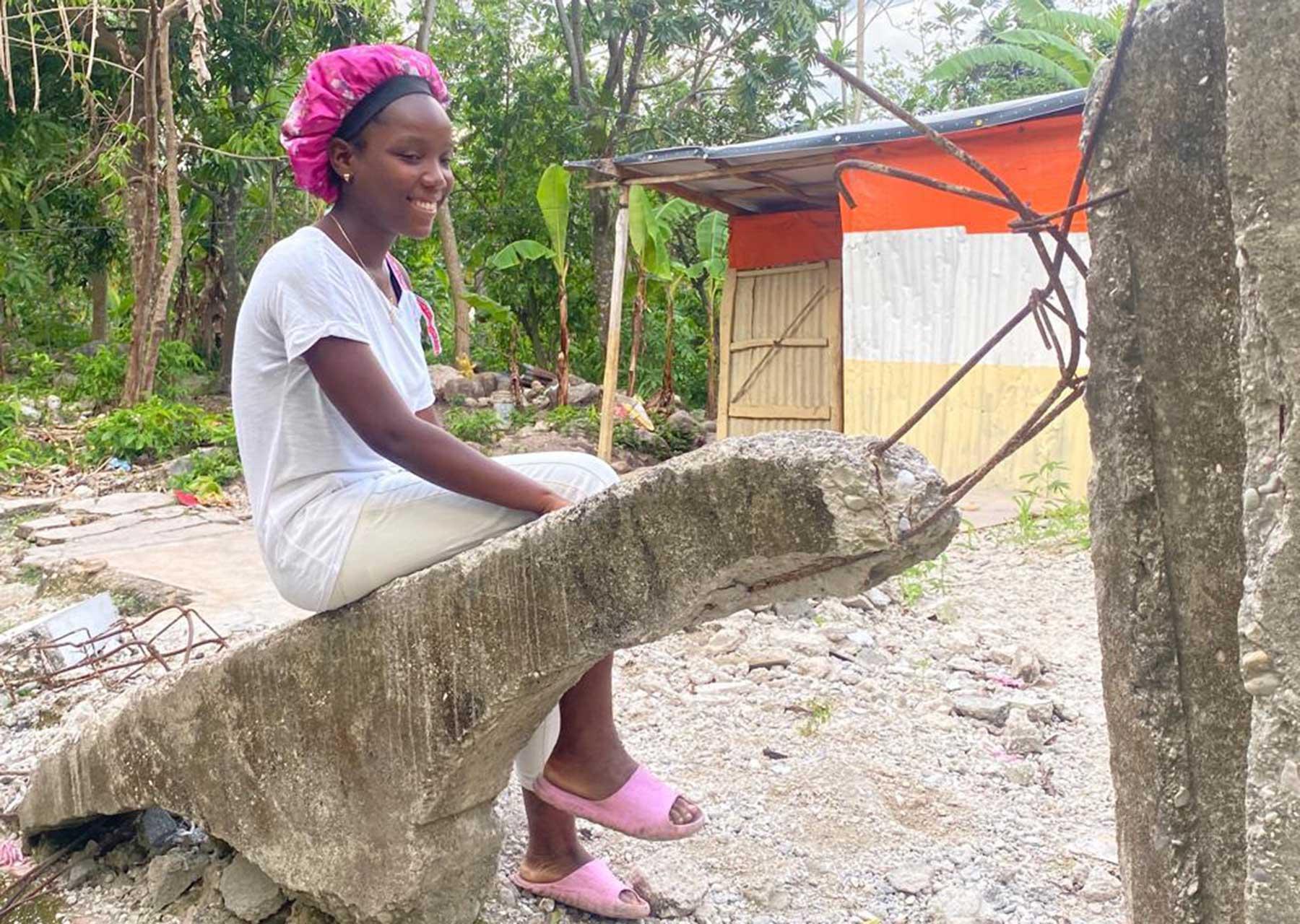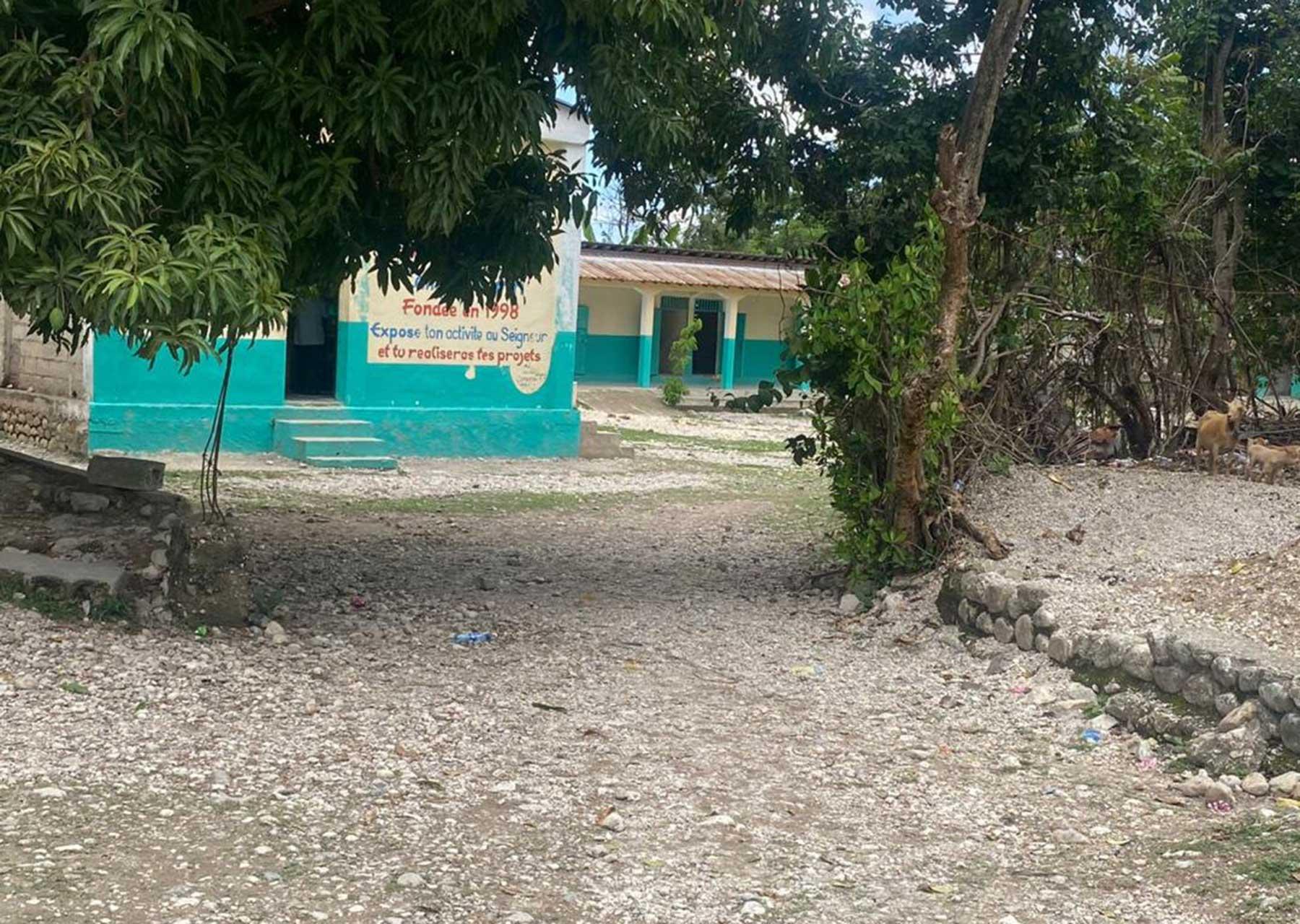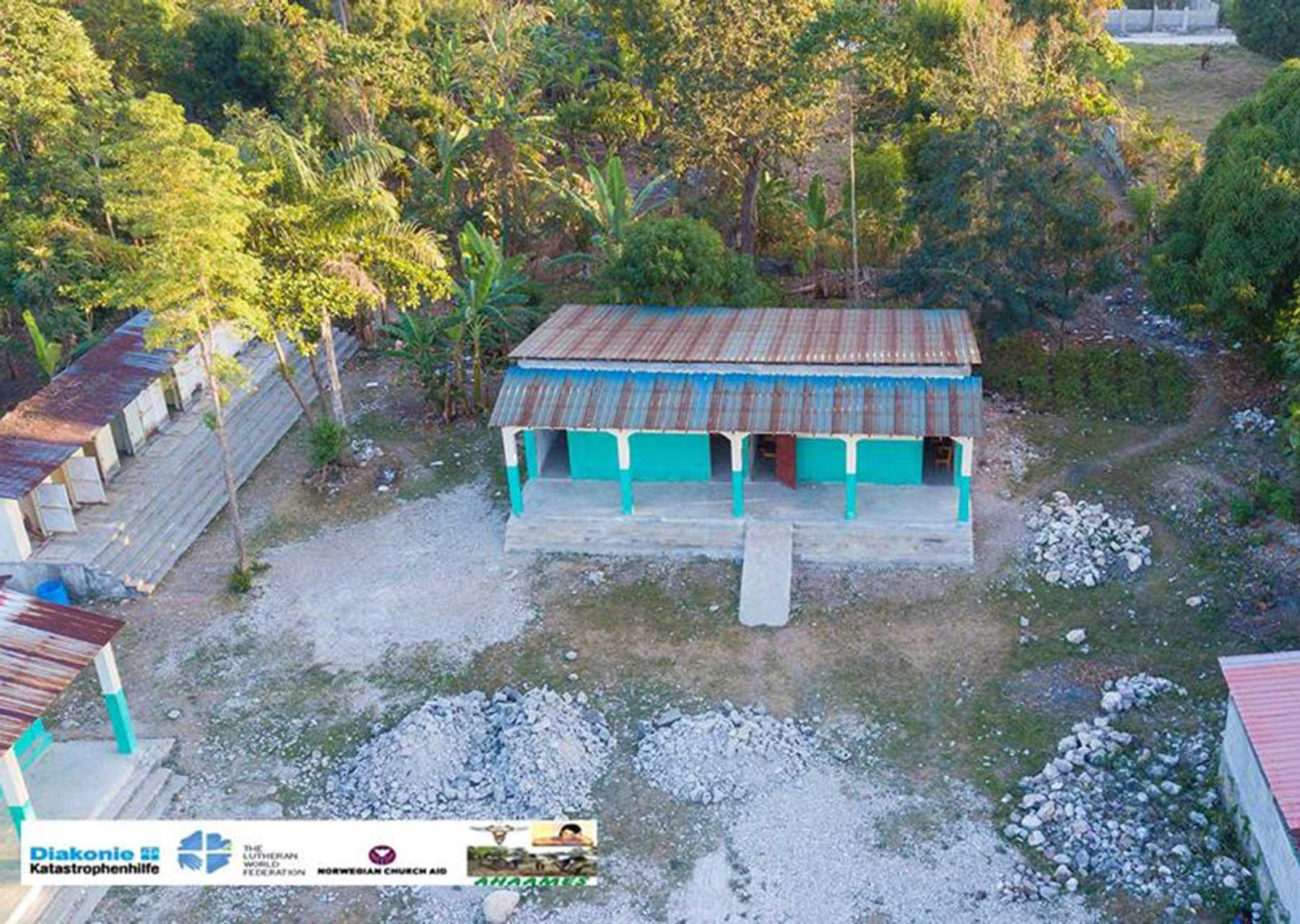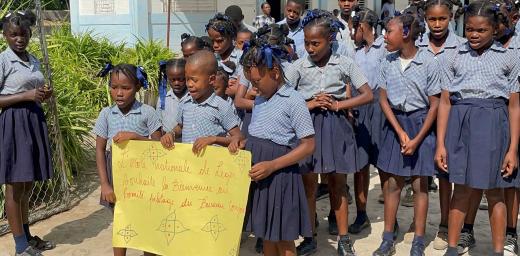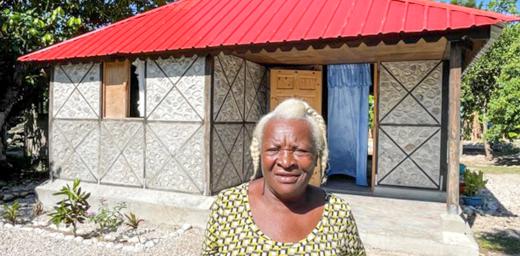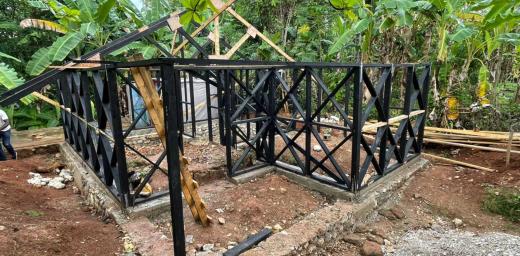LWF, NCA set up water and sanitation infrastructure
(LWI) - Clean toilets and water to wash and drink are still a luxury for the students at Ecole Lespwa in Camp Perrin, Haiti. The Lutheran World Federation (LWF) and partner Norwegian Church Aid (NCA) are setting up proper water and sanitation infrastructure and training the children to adopt good hygiene habits.
Camp Perrin in the South Department of Haiti is a rural community of 32,000 inhabitants and has been heavily affected by the earthquake in August 2022. Many families still live in provisional shelters, many schools have not yet been rebuilt. In addition, the social insecurity in the country hinders the rebuilding of essential infrastructure.
A school of hope
Ecole Lespwa (creole for "School of Hope") is one of the few institutions still running. Its 324 students come from the surrounding communities and walk between 30 minutes and two hours to attend their lessons, but when they arrive at school, there is often no water to wash or to drink. The dry compost latrines smell bad, not encouraging the students to use them. It is difficult for older girls to practice proper menstrual hygiene, which puts them at risk of missing school.


